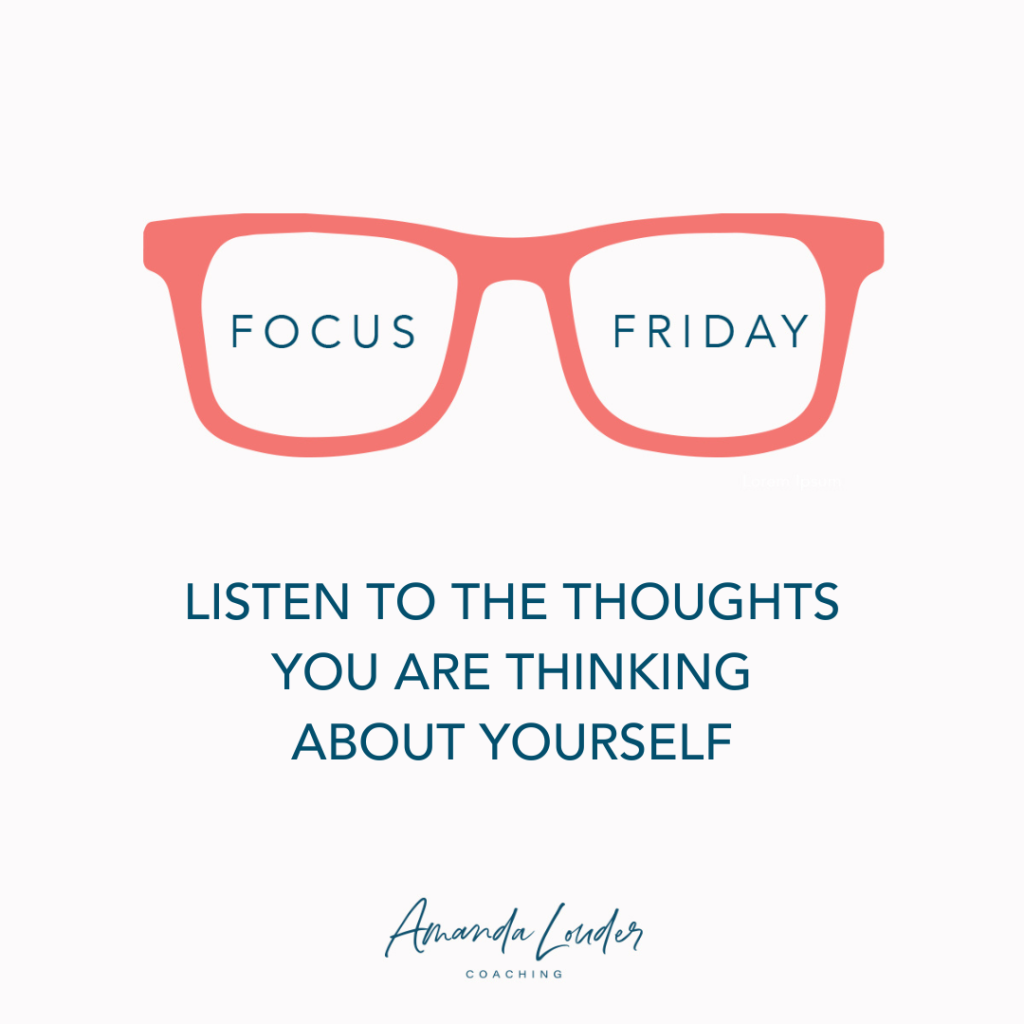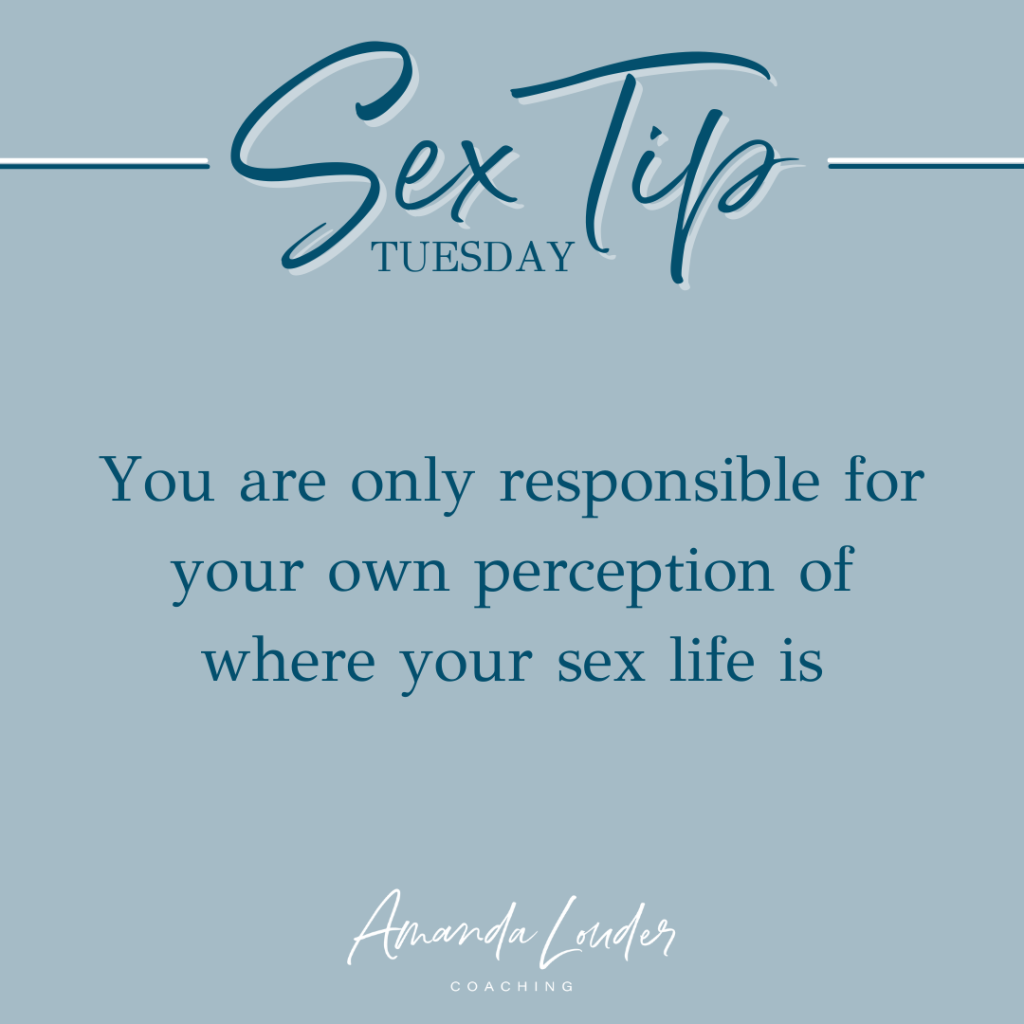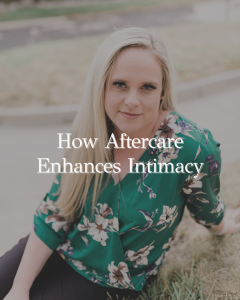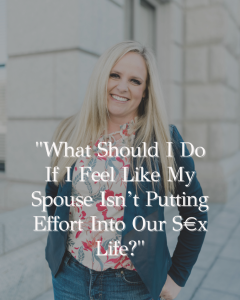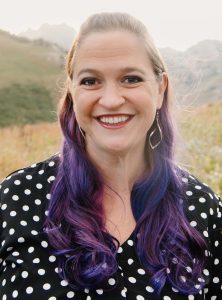
You may look at the title of this podcast and think, “What does being a good mom have to do with the bedroom?” My guest, Emily Wardrop of Drop the War Life Coaching, shares with us how your thoughts about how you’re doing as a mom affects your whole life, including in the bedroom. Listen to this episode to hear what you can do to not only KNOW that you are a good mom but also KNOW that you are a good lover.
You can find Emily at:
Her website: www.dropthewarlifecoach.com/
Her podcast: Believe you are a Good Mom with Emily Wardrop
Download her masterclass on Believing you ARE a Good Mom at: www.dropthewarlifecoach.com/believe
Download her training specifically for T1D Moms at: www.dropthewarlifecoach.com/T1D
Show Notes:
Follow Amanda on Facebook and Instagram.
Join Amanda’s Private Facebook Group.
References for this episode:
Download her masterclass on Believing you ARE a Good Mom at: www.dropthewarlifecoach.com/believe
Download her training specifically for T1D Moms at: www.dropthewarlifecoach.com/T1D
Show Summary:
Amanda Louder: Hey everyone. I have my friend Emily Wardrop on the podcast today. Hey, Emily.
Emily Wardrop: Hi. So excited. This is one of my favorite podcasts.
Amanda: Yay. I’m so happy that you’re here. So Emily is a fellow life coach and she’s gonna be talking to us today on the topic of how being a good mom also can make you a good lover.
So Emily, I’m gonna turn the time over to you to introduce yourself and talk more about this amazing topic.
Emily: Okay. Awesome. Literally, right before this call, another coach friend of mine told me that I’m the messy mom coach. I’m like, Perfect. This is what I’ve been looking for all these years as a quick little, that’s who I am. I’m the messy coach.
Amanda: Love it
Emily: I coach other messy moms. That’s what we do. So I’m Emily Wardrop from Drop the War Life Coaching. We drop-You know that’s a play on my last name War. Yes. War . It’s a war with power struggles with our little kids. I coach moms of young kids, especially moms who have kids that have Type one diabetes, because I have two of those myself. And am very familiar with all the brain drama that goes with that. And I don’t know how I’d be surviving without coaching. So I really wanna help other moms that are drowning in the diabetes anyway.
Amanda: Awesome. So what else about you? Tell us a little bit about you. What’s your family like? I mean, you said you have two kids with type one diabetes, but I know you have more than two kids,
Emily: Correct. There’s five total. So the oldest is eight. The youngest just turned one. I’m so happy to be done with the baby phase . Maybe you think one year olds are still babies, but you know what I mean? First year of baby. Yes. Very done.
Amanda: Okay, so you talk to moms a lot about how they are a good mom. Tell me more about that.
Emily: Okay, so what I help people do is to believe that they are a good mom. So you are a good mom inherently because God made you. God’s good. You are good, that’s it. Like it’s all good. The reason we think that we’re not a good mom is because we have this big, long list of expectations of ourselves, and if we don’t check all of those boxes all of the time, then we don’t let ourselves believe that we’re a good mom.
So I say drop the war on that list, just throw it away and believe that you are, it’s who you are inherently in your court. So I love the visual of David and Michelangelo, the sculptor. Allegedly, someone asked Michelangelo, how do you make these amazing sculptures? And he says, I just carve away the marble until David appeared. And I feel like as coaches, we help cut away the marble to find who you really are inside. So being a good mom is not some like destination that’s way out there somewhere. It’s like running on a treadmill; you’re never gonna get there. You’re just gonna keep that list getting longer, longer and longer. Expectations of yourself, of your kids, of your feelings, of their feelings. All the things is what makes you think that you’re a bad mom. You’re not a bad mom, you’re good. It’s who you are. And then when you believe that, then you actually live into that because we know how the model works. If your thought is, I’m a good mom, then you feel confident you show up confident and you prove to yourself that you are a good mom. But our brains like to think that we’re a terrible mom. I just completely lost it this morning. We had a terrible morning.
Amanda: Morning after Halloween when they’ve all been night up on candy, right?
Emily: Who had a good morning this morning? Nobody. November 1st is a bad morning, and I am still a good mom. So I did all this craptastic stuff this morning, but I am still a good mom and I am still a good mom because I’m not what I do, I’m not how I feel. I’m not all these things outside of me. It’s who I am and I’m a human and I’m, you know, struggling through this life like all the other messy moms. Right? We’re all a mess. Yes. And we are. It’s who we are. So just this simple concept is so hard for my brain to wrap itself around so hard and, but once you think a thought enough, it becomes a belief. So that’s what I help my clients do, is to believe that they are a good mom. Like we’re gonna think it over and over and over until we really believe it. And that is where the huge change happened for me in my parenting journey. And so that’s what I really love to help other parents do, and I would love to also apply it in your realm that you can do that with anything. I am a good lover. Like I just am. It’s not because I don’t know the mechanics and, and I don’t know what’s going on for him. I don’t know what’s going on for me. I must be terrible in bed. I don’t know. I can’t get to some certain destination I’m trying to get to whatever, all the things making it mean that we’re a bad lover. No, that’s not a thing. Like you are a good lover and you’re trying to figure this out and it’s a lifelong pursuit and God made it tricky for a reason. For us to figure this out and, yeah.
Amanda: Well, and I think, I mean, and I just talk about all the time that we are inherently sexual beings, so we may not understand. We don’t have a playbook. We don’t have an instruction guide of how to have sex correctly necessarily. I mean like get basic, like penis and vagina, but like how to actually have a sexual relationship. We don’t usually have a manual on that, just like we don’t have a manual on how. You know, motherhood is supposed to work and all of these, all the scenarios that come up with motherhood. But when we can believe that we are inherently a good mom, inherently a sexual being, then that creates the confidence that we need to be able to act in that way to actually create it for ourselves, right?
Emily: Yes. And I love the thought that it’s delusional either way. Because that’s what people like to say. It’s like when you’re trying to believe a new thought, your brain rejects it so hard that it’s like, but I’m not a good mom. I’m a terrible mom. I’m not inherently sexual. I have all these blocks and all these things, you know? But, that’s just what happens when you try on a new thought. Like it takes some rewiring of the brain to actually believe it, but it’s delusional either way. Like it’s just a thought either way. And so which one is gonna serve you better to believe that you’re a terrible mom or believe that you are a good mom? And as far as that goes, once you believe that you’re a good mom and you can take all the weight off of your shoulders, it’s a heck of a lot easier to relax and enjoy yourself in bed. So if you’re trying to prove to yourself that you’re a good mom, you’re probably doing things like over-parenting. I can’t leave my kids out there while we’re doing whatever in here. My kids have to be supervised at all times, or I don’t know what’s going on.
Amanda: It’s like I have to be available at a moment’s notice no matter what’s happening. So of course I can’t engage with you and ignore them. Cause you’re not actually ignoring them, by the way.
Emily: Right. You’re letting them live their life. You’re living your life. That’s okay. You don’t have to prove to anyone that you’re a good mom. You just are. Now, what do you want to do? Then you give yourself permission to enjoy pleasure for yourself. And the same with your husband. Like to give up controlling his emotions. I just am a good wife. It doesn’t matter what he thinks. It doesn’t matter. On a scale of 1 to 10, what he says your sexual relationship is at today is like he’s in his own world doing his own thing, and you’re only responsible for your own perception of where your sex life is at today. You know, and when if you wanna believe my sex life is a 10 outta 10, it just is. Inherently, I’m a sexual being and I’m trying to learn what that even means and how I can incorporate that. Because I also am a human and I have all the conditioning and I have all the experiences and I have all the things that I need Amanda to coach me through and like, yeah.
Amanda: Yeah, I remember. So taking this back to motherhood. So I have three biological children and I have two stepdaughters. And I struggled so much with motherhood. Of course I wanted these kids, but then I got them and I was like, what is wrong with me? I expected to be fulfilled by motherhood and I really, really wasn’t. Of course I loved them, but I was never fulfilled by motherhood and, I used to beat the crap out of myself because of that. Or, you know, anytime I would lose my temper or you know, not handle things the right way, I would just beat the crap outta myself over and over and over. And I think it was about, gosh, 2013 maybe. I remember I came to this realization. And I mean, by that point I had a 14 year old. I mean, you know, it was, I had older kids by this point and it took me this long to figure it out and you know, I’m sure some people still haven’t figured it out, but it took me this long to figure it out that the atonement covers my inadequacies as a mother, just like it covers everything else that I’m not expected to be perfect in this realm and my kids needed me and my inadequacies for their own development and purpose. Now, if we translate that into the sexual realm, you know what? All the conditioning that we’ve received, all of the inadequacies that we have in the bedroom and with our sexuality, let’s say, what if that is actually for a purpose?
What if that is actually for our good to work to overcome with the help of the atonement and the Savior so that we can develop into the people that we are supposed to be? I think that’s a really important thing to remember.
Emily: Totally. I call that the divine algorithm, that God has it exactly perfectly aligned that he knows us so well. He knows our kids so well. And our husband so well, like He knows that it’s just exactly perfect, what we need for our growth, development, maturation, everything like the reasons we’re on this earth. He has it orchestrated perfectly and growth does not come in ease. So if men and women were wired the same and we could both have that same experience that easily, then what would we learn? How would we go? How would we develop?
Amanda: Well, and I, I mean, I think part of the reason why we have children is for our growth and benefit, right? I mean, we’re raising them. You know, and helping them learn and grow. But really it’s us learning and growing, and I think it’s the same in marriage and in our sexual relationships. Like these are the refiner’s fire. These are the things that pressure us more than anything else to grow and become who we are supposed to be.
Emily: Yeah. So I like to think of becoming, as I said before, we are, you know, because we like to think of become as like, again, like some destination we’re trying to get to. And so then I like to look at it as like I am that, and then I’m trying to remember who I am. Because just for me, like becoming is just is, like I said, it’s like running on a treadmill. I feel like I’m getting nowhere. It’s like it’s unattainable and I don’t need to attain something – I already am her. I need to remember who she is and just live into my greatness that I am. And accept that I’m also a human and I’m gonna make mistakes, and that that’s all part of the plan, and that I’m messing them up in all the perfect ways. It’s one of my favorite mantras.
Amanda: Well, it’s chipping away. They, you know, Michelangelo’s chipping away at the stone.
Like we’re just chipping away to reveal who we actually are.
Emily: Yeah. So we chip away limiting beliefs and conditioning and all the things and I know we always want a quick fix. You know, I wanna be a great mom tomorrow, or I just, Amanda, fix me right now. You know. But if we were fixed in the blink of an eye, then what would we do for the rest of our life? We’d be so perfect. We’d be bored.
Amanda: Right, right. Well, and so many times I think we get through, especially like those little kids stages, you’re like, yes, I’m done with baby. And now you’re gonna have, you know, you’ve got these kids that are. Your oldest one’s starting to move into those tween years, right? And then there’s a whole lot more chipping away that has to happen.
Emily: Yeah, exactly. Like I always thought, cuz I didn’t get married till I was 31. Let me go back and say, we don’t need to be fixed at all. Because I can’t believe that it just came outta my mouth. That’s one of the things I always say the opposite. we’re broken. We don’t need to be fixed. But anyway, different tangent. So I was single forever, right. I got married when I was 31, so
Amanda: Oh, you old maid.
Emily: Yes. And so through all those years I was like, oh, I’m learning patience. And on my mission I was like, oh, the whole point of this is to learn patience and, and then I get married. I’m like, whoa, okay. Marriage. There’s like a whole new level of patience. And then kids, hello . So again, patience I think is one of those things. It’s a lifelong pursuit. It’s not like you have it or you don’t have it, and you don’t just pray for it and it’s just gonna be gifted to you. It’s actually through life coaching I’ve learned patience as a feeling, and all feelings are okay. I am not impatient. I am a good mom and I feel feelings and I feel impatient still, even when I believe I’m a good mom. And so I feel impatient. I feel frustrated. I feel overwhelmed, but it doesn’t define me and it doesn’t rule the day. I don’t have to spin out in frustration and that just builds on top, on top of top. Beating myself up. I can’t tell you how many times I say you cannot beat yourself up better. You just can’t. You can only beat yourself down.
Amanda: Yeah, for sure. Well, and what it all comes back to, don’t you think, is that relationship with yourself and choosing to love yourself no matter where you are, no matter what’s happening, whether it’s, you know, motherhood. Or in the marriage or in the sexual relationship. When we choose to love ourselves through the process, we’re going to be showing up better through the process.
Emily: Yeah. That’s exactly what it’s all about. Because my kids know that I preach that I’m a good mom, right? And so they always say when they’re mad. My one daughter especially, she’s like, “you’re not a good mom. You’re the worst mom,” . And so I have to be able to get my own back and know that I am a good mom even when my child is full on telling me I’m the worst mom, and just know that is my relationship with myself. And that, of course, none of us are ever gonna be perfect at that. And it’s still gonna sting because your child just told you you’re the worst mom. But I remind myself, just like when my brain tells me I’m the worst mom, I’m like, you’re not saying anything I don’t hear all day long in my own head, sister, in my own head.
Amanda: Yeah. Tell me what you mentioned when we were preparing for this interview about the light and the shadow. Do you want me to read your words back to you? You said, let’s see what mortal dark sides we face right now. The shadows come from light. There’s always good there. There has to be an order to cast the shadow, but we need to look for and focus on the light.
Emily: I’m still receiving revelation that I instantly forget. So, yeah, there has to be opposition in all things, right? And so if we’re just beating ourselves up about our imperfections, we’re never gonna discover who we really are, our light inside, and it’s that light I was having some aha moment when I was writing that, you know, that calm is the shadow.
Have you ever had the experience where maybe you’re at the temple or somewhere you have this really great spiritual experience and then you come home and you’re completely losing it all over your kids. Did I not just fill my bucket up to overflowing and now why do I feel completely depleted as soon as I walk back in the house? It’s like there just has to be opposition in all things and if you kind of look at it that way, then you have more grace for yourself. That’s really kind of all I’m trying to help people with all the time is self-compassion. Self-compassion. Self-compassion. And so to just know that that’s the whole point of this life is to learn and grow. We can’t do that without the opposition. Because I think the shadow side is kind of a buzzword right now in psychology circles, you know? And I think people might get a little bit scared of what they might find if they tap into their shadow side, but a lot of it is like just trying to get out and to just accept your whole self. And so a lot of people even teach you’re a 50-50 mom, you’re half good, you’re half bad. It’s all good. You know? And that just wasn’t good enough for me. I don’t wanna be 50% good mom or I’m 50% bad mom. I’m a hundred percent a good mom. And I do things and I feel things and I act out my feelings sometimes I don’t handle anything perfectly actually and it’s okay. I am a good mom.
Amanda: So a lot of what I teach comes from the tantra traditions, and tantra is all about embracing all of it, embracing the light and the dark. And I think that’s really the key for all of this is, you know, God made us with both parts in us. He made us so that we lose our temper sometimes. That’s just part of being human, right? I like the scripture and I’m gonna totally butcher it, but, I give men weakness that they may be strong and it doesn’t say, and they be like, and, but it doesn’t say weaknesses. It says weakness. It’s our mortality, it’s our humanness, which means we have light and dark, the yin and the yang. Right? We all have that dark within us, but when we can learn to accept and even love and be grateful for the dark parts, more light comes out. It’s when we try to shove those dark parts under, that causes us problems. But when we just choose to love all of us and even love all of our spouse and love all of our children because of this, then more love shines through.
Emily: Yeah. Yeah, exactly. Because when we have grace for ourselves, it’s so much easier to give grace to our kids. Like when I believe I’m a good mom, I am also believing that my kids are a good kid, you know? Cause sometimes the shame hurts so bad that we just turn it to blame instantly, you know? There’s nothing wrong with me, it’s just my kids are just a mess. What’s wrong with my kids? And so wherever you start, it’ll help everywhere else. So whether, for me, it’s judging my husband, like I’m just so all up in judgment of him. It’s a trigger to me to know that I have to work on my relationship with myself again. You know, cuz I just get tired of judging myself all day long. He gets home and it’s like, oh, that’s a new target. Let me just judge him instead. And so to just take the judgment lens off with, grace, compassion, love, and is a lot easier said than done
Amanda: It is a lot easier said than done, but that’s where a coach can come in and help you with that, right? And help you see where you are doing that and where you think you’re doing better, but you’re actually still not. Cause we all do that too, right? We think, oh yeah, I’ve got this part all figured out and we really don’t. That’s why coaching is so great.
So tell my audience how they can find you and work with you if they want to really get out of being the messy mom or accepting, I guess the messy mom.
Emily: Accepting they are a messy mom and they are a good mom. So I have a podcast called Believe You Are a Good Mom, and I also have a free master class that is pre-recorded, so you just get access to the video type of thing. And that is at. DropTheWarLifeCoach.com/believe. DropTheWarLifeCoach.com is my website so go there to get all the goods. There’s lots of fun stuff. And on Instagram, Facebook, YouTube, all the things. And if you do have a child with Type 1 diabetes or know someone who does, DropTheWarLife Coach.com/T1D for specific diabetes help.
Amanda: That’s awesome. Well, thanks for being here with me today, Emily. It was great to have you.
Emily: Thank you. I love you
Amanda: And Emily is going to be doing a workshop in the month of November inside the membership. So if you are in the membership then you’ll get to see that first hand out and if you decide to join later, then you’ll get to see the recordings, so thanks so much. Thanks so much for being here, Emily. Bye. Bye.

